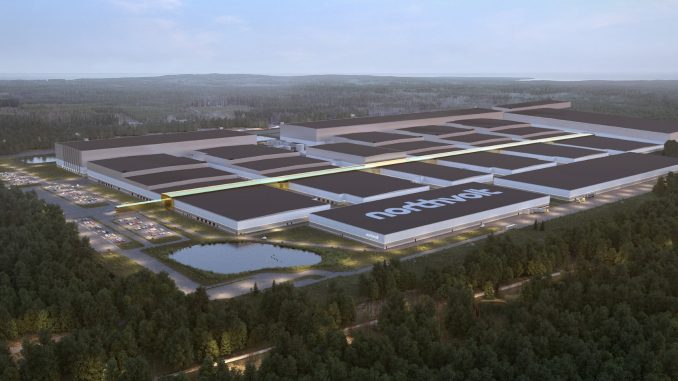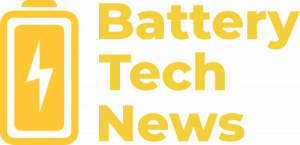
As commercial recycling operations start at Hydrovolt in Norway, joint venture partners look towards European expansion.
- Northvolt–Hydro battery recycling joint venture Hydrovolt has commenced commercial recycling operations at its plant in Fredrikstad, Norway.
- Hydrovolt is Europe’s largest electric vehicle battery recycling plant, with capacity to process 12,000 tons of battery packs on annual basis – sufficient to recycle the entirety of the Norwegian end-of-life battery market.
- The fully automated recycling process is enabling up to 95% of materials to be recovered from batteries, including black mass which will be supplied to Northvolt for further recycling to support Northvolt’s goal of using 50% recycled material in battery production by 2030.
- Aluminium recovered through Hydrovolt will be delivered to Hydro for recirculation into commercial grade aluminium products.
- Hydrovolt is exploring an expansion of recycling capacity within Europe, with a long-term target to recycle approximately 70,000 tons of battery packs by 2025 and 300,000 tons of battery packs by 2030.
Stockholm / Oslo: Northvolt–Hydro battery recycling joint venture Hydrovolt has commenced commercial recycling operations in Fredrikstad, southern Norway.
Hydrovolt is Europe’s largest electric vehicle battery recycling plant, capable of processing approximately 12,000 tons of battery packs per year (around 25,000 EV batteries). With the plant now online, a sustainable solution for handling Norway’s entire volume of electric vehicle batteries being retired from the market, or reaching end-of-life, is now available.
Integrated with a novel process design, Hydrovolt can recover and isolate some 95% of the materials in a battery including, plastics, copper, aluminium and black mass (a compound containing nickel, manganese, cobalt and lithium). Several novel concepts designed to maximise recovery of materials are found within the plant, including a dust collection system which ensures valuable material typically lost through mechanical recycling steps is captured.
Hydrovolt is exploring an expansion of recycling capacity within Europe, with a long-term target to recycle approximately 70,000 tons of battery packs by 2025 and 300,000 tons of battery packs by 2030, equivalent to approximately 150,000 EV batteries in 2025 and 500,000 in 2030.
Peter Qvarfordt, CEO of Hydrovolt, comments: “Hydrovolt represents a milestone on Norway’s trailblazing journey towards widespread electric transportation. Norway has been leading the world in adoption of electric vehicles for some years, but what has been missing is recycling capacity to ensure a sustainable solution for those batteries as they reach end-of-life. Today, Hydrovolt is scaled to handle the entire volume of end-of-life batteries in Norway, but we’re now looking towards expanding to ensure we’re prepared for the higher flows of batteries we know are coming.”
Arvid Moss, Executive Vice President in Hydro, comments: “Batteries play a key role in the world’s transition to renewable energy. Through Hydrovolt, we are laying the foundations for a sustainable and circular supply chain for batteries in Europe. Batteries reaching end-of-life will get a new life through the recovery of black mass and aluminium. Aluminium can be recycled with only 5% of the initial energy required to produce primary aluminium, which makes it a perfect material for a circular economy.”
The recycling of batteries will contribute directly to the sustainability of the battery industry and is necessary for fulfilment of emerging European regulations governing batteries, including forthcoming mandatory recycling targets.
Significantly, the recovery of black mass – a powder containing metals of nickel, manganese, cobalt and lithium – will reduce today’s dependence on mining as a source for primary raw materials, and all the relative risks and vulnerabilities associated with it.
Emma Nehrenheim, Chief Environmental Officer of Northvolt, comments: “Recycling end-of-life batteries is a cornerstone to ensuring the electric vehicle transition is a true success from an environmental perspective. The metals used in battery production are finite, but by substituting raw materials mined from the Earth with recycled materials we can not only cut the carbon footprint of batteries but enable the sustainable long-term use of lithium-ion battery technology.”
Processing black mass into battery-grade material requires a hydrometallurgical treatment such as is being established at Northvolt’s Revolt Ett recycling plant in Skellefteå, Sweden. By 2025, it is expected Hydrovolt will produce over 2,000 tonnes of black mass annually.
About Northvolt
Northvolt is a European supplier of sustainable, high-quality battery cells and systems. Founded in 2016 to enable the European transition to a decarbonized future, the company has made swift progress on its mission to deliver the world’s greenest lithium-ion battery with a minimal CO2 footprint and has grown to over 3,000 people from over 100 different nationalities.
Northvolt has to date secured more than $50 billion worth of contracts from key customers, including BMW, Fluence, Scania, Volkswagen, Volvo Cars and Polestar, to support its plans, which include establishing recycling capabilities to enable 50 percent of all its raw material requirements to be sourced from recycled batteries by 2030.
About Hydro
Hydro is a leading aluminium and energy company that builds businesses and partnerships for a more sustainable future. Hydro develops industries that matter to people and society. Since 1905, Hydro has turned natural resources into valuable products for people and businesses, creating a safe and secure workplace for 31,000 employees in more than 140 locations and 40 countries.
Hydro own and operate various businesses and have investments with a base in sustainable industries. Hydro is present in a broad range of market segments for aluminium and metal recycling, and energy and renewables. The company offer a unique wealth of knowledge and competence.
Hydro is committed to leading the way towards a more sustainable future, creating more viable societies by developing natural resources into products and solutions in innovative and efficient ways.
Source: Europe’s largest EV battery recycling plant opens (northvolt.com)
